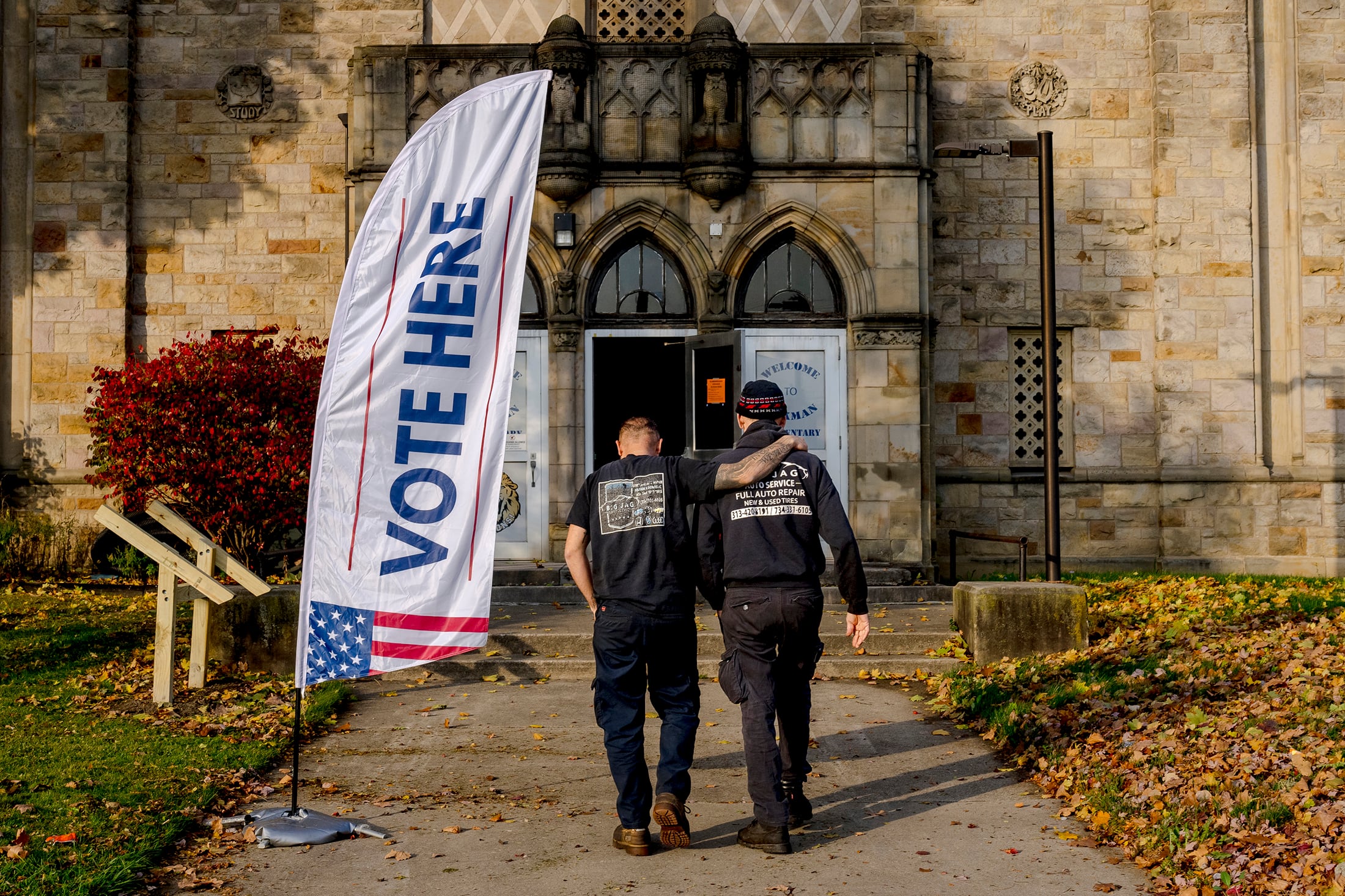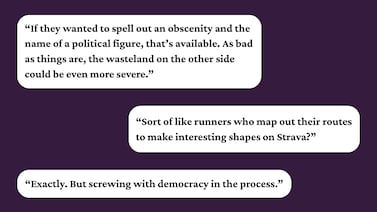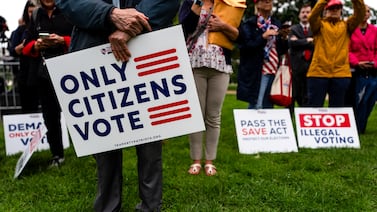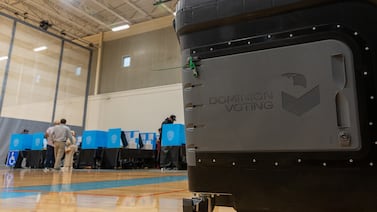Votebeat is a nonprofit news organization reporting on voting access and election administration across the U.S. Sign up for Votebeat Michigan’s free newsletter here.
A new petition to amend the Michigan Constitution — nearly identical to one already in circulation — aims to put a proof-of-citizenship requirement for voting on the 2026 ballot.
But running a second petition on the same issue could sink them both.
“They’ve got some substantive differences between our proposal and theirs that aren’t super apparent if you just sort of glance through it, but they’re pretty important,” Fred Wszolek, spokesperson for the Committee to Protect Voters’ Rights — the original group to win approval for its petition language — told Votebeat. “This is interesting. But we’re not on the same page.”
The second group, Americans for Citizen Voting — an effort from the Virginia-based libertarian group Liberty Initiative Fund — is set to go before the Michigan Board of State Canvassers later this week with its plan to ask voters if they want a proof-of-citizenship requirement in the state constitution. First, it has to win the board’s blessing on the text of a 100-word summary that would appear at the top of the petitions that voters would sign. If the group collects enough signatures, the measure would appear on the 2026 ballot.
Much of the new proposal mirrors the one from the Committee to Protect Voters’ Rights, which the board already approved for signature gathering. But the Americans for Citizen Voting proposal goes further in a few key ways: It clearly defines the type of identification acceptable for proving citizenship and suggests both civil and criminal penalties for voters and election officials alike who fail to comply with the new rules.
“We think (the new proposal) is stronger from a legal standpoint and also a political standpoint,” Paul Jacob, president of Liberty Initiative Fund, told Votebeat. “In the end, my hope is that there will be one effort that goes forward.”
Under state law, the organizers of petition drives must get 450,000 valid signatures from registered Michigan voters in order to get their proposal on the ballot. In the case of the two proof-of-citizenship questions, each one would have to get that many signatures to appear on the ballot.
At that point, Michigan law is clear: If both eventually make it to the ballot and both are approved by voters, whichever gets more yes votes would be the one that goes into the state constitution.
Gathering signatures for two measures that are so similar could be tricky for the organizers. The proposed summary language for the ACV proposal is only a few words off from what the Board of State Canvassers approved last month for CPVR.
That language is what most would-be petition signers would see, and the minimal difference between them could mean that voters sign again for an effort they’ve already supported while intending to sign the other petition.
In Michigan, that’s not allowed. Voters are allowed to sign for any number of efforts — including ones that seek to amend the same part of the constitution — only once for each petition question. If a person signs the same petition more than once, all of that person’s signatures could be thrown out, even if they are otherwise a valid registered voter. (State lawmakers tried to address that issue and others involving signature gathering campaigns, last year, but the legislation stalled.)
Two similar petitions circulating at the same time could also mean voters opt against signing a petition they would endorse, thinking they had already signed it, and potentially making it difficult for organizers of either effort to gather enough signatures.
“There’s no way to just eyeball this thing casually to know which was which,” Wszolek said, adding: “Unless you really had a photographic memory as to which one you signed and which you didn’t, it would be really hard to know.”
He said it could be helpful if the petitions were printed on different colored paper, for instance, as a visual marker for voters, but that’s not allowed under state rules.
And there’s no telling how voters would react if they see two proof-of-citizenship proposals on the same ballot next year — whether they would vote to approve both, or favor one of the two, which could end up fracturing support for the proof-of-citizenship requirement.
Both groups agree that Michigan voters should be required to prove their citizenship, but they take different approaches to how that should be done — differences that could create confusion for both voters and election officials.
The ACV proposal would require the secretary of state to maintain separate lists of voters who would be eligible to vote in all elections and those who could vote only in federal elections. It’s an Arizona-style requirement that can be costly and difficult to maintain, although what implementation could look like in Michigan is not laid out. Arizona’s rules on that largely come from court rulings after its own proof-of-citizenship requirement was approved. As Votebeat reported last year, separate list keeping tends to disproportionately affect young voters, particularly those living near college campuses, and homeless voters.
A person is required to be a U.S. citizen to vote, but federal law does not require people to provide documentation to prove it. They just have to attest under penalty of perjury that they are citizens.
Michigan Republicans have been zeroing in on a statewide effort to require proof since at least the fall, when news broke that a University of Michigan student from China cast a ballot despite not being a citizen. (A bench warrant for that student, 20-year-old Haoxiang Gao, has since been issued after he failed to appear in court last month.)
Since then, an audit from the state found an additional 15 cases of noncitizens who may have cast a ballot in the 2024 general election. The bulk of those have been referred to the attorney general’s office, and investigations are ongoing.
Voting rights groups and Democratic officials have maintained that requiring voters to show documentary proof of citizenship threatens to disenfranchise eligible voters, especially those who have trouble accessing their documents; Republicans say it is the only way to verify that all ballots cast are from U.S. citizens.
The Board of State Canvassers is scheduled to consider the new effort at 10 a.m. Friday.
Hayley Harding is a reporter for Votebeat based in Michigan. Contact Hayley at hharding@votebeat.org.





